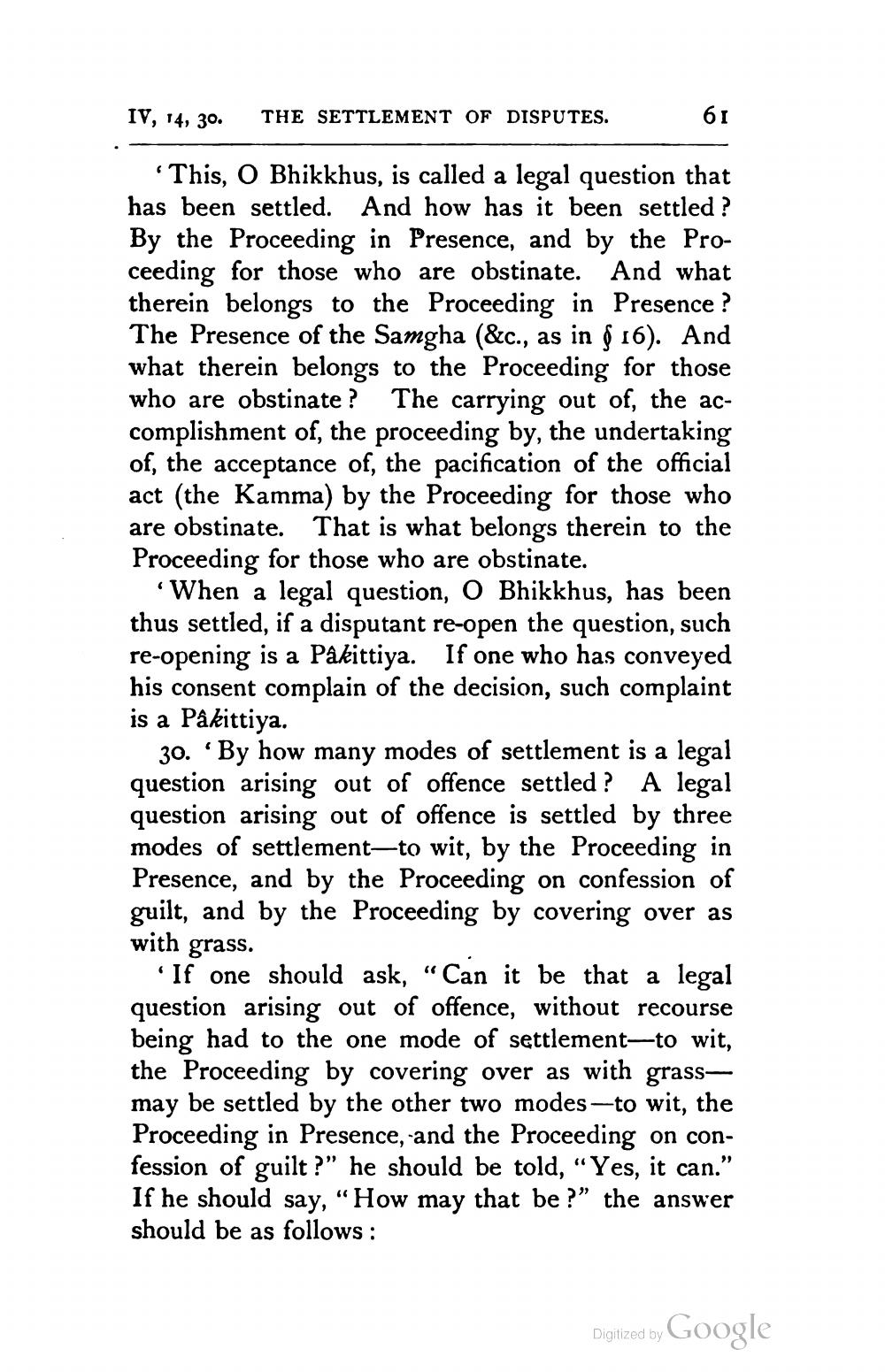________________
IV, 14, 30.
'This, O Bhikkhus, is called a legal question that has been settled. And how has it been settled? By the Proceeding in Presence, and by the Proceeding for those who are obstinate. And what therein belongs to the Proceeding in Presence? The Presence of the Samgha (&c., as in § 16). And what therein belongs to the Proceeding for those who are obstinate? The carrying out of, the accomplishment of, the proceeding by, the undertaking of, the acceptance of, the pacification of the official act (the Kamma) by the Proceeding for those who are obstinate. That is what belongs therein to the Proceeding for those who are obstinate.
'When a legal question, O Bhikkhus, has been thus settled, if a disputant re-open the question, such re-opening is a Pâkittiya. If one who has conveyed his consent complain of the decision, such complaint is a Pâkittiya.
THE SETTLEMENT OF DISPUTES.
61
C
30. By how many modes of settlement is a legal question arising out of offence settled? A legal question arising out of offence is settled by three modes of settlement-to wit, by the Proceeding in Presence, and by the Proceeding on confession of guilt, and by the Proceeding by covering over as with grass.
'If one should ask, "Can it be that a legal question arising out of offence, without recourse being had to the one mode of settlement-to wit, the Proceeding by covering over as with grassmay be settled by the other two modes-to wit, the Proceeding in Presence, and the Proceeding on confession of guilt?" he should be told, "Yes, it can." If he should say, "How may that be?" the answer should be as follows:
Digitized by Google




